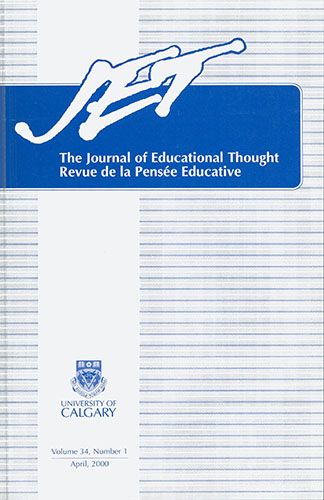The Employability Skills Discourse: A Conceptual Analysis of the Career and Personal Planning Curriculum
DOI :
https://doi.org/10.55016/ojs/jet.v34i1.52612Résumé
The current focus on employability skills in Canadian public schooling raises important conceptual questions regarding this instructional approach to vocational education. In British Columbia, the Career and Personal Planning (CAPP) curriculum, introduced into secondary schools in 1995, reflects the growing trend toward skills education as a way to enhance the occupational relevance of schools. The career preparedness component of CAPP commits two fundamental category mistakes in its classification of employability skills both with potentially serious consequences for education. First, by incorrectly conflating distinct categories of concepts under the general rubric of generic skills, the contextual understanding, background know ledge, and epistemic attitudes required to achieve certain desired cognitive competencies are disregarded. Secondly, CAPP categorizes attitudes, values, and dispositions as skills and, in so doing, obscures important ethical distinctions between the contentious area of values education and basic skills instruction. By employing examples from both CAPP and the Conference Board of Canada's Employability Skills Profile (ESP), a mandatory supplement to the former program, this paper reveals how these category mistakes may prevent students from achieving program objectives, and circumvent important moral issues concerning the conveyance of values and attitudes to students.
Téléchargements
Téléchargements
Publié-e
Numéro
Rubrique
Licence
The Journal of Educational Thought retains first publication rights for all articles. The Journal grants reproduction rights for noncommercial educational purposes with the provision that full acknowledgement of the work’s source be noted on each copy. The Journal will redirect to the appropriate authors any inquiries for further commercial publication of individual articles. All authors wishing to publish in JET will be asked to fill in and sign a Consent to Publish and Transfer of Copyright agreement.
Authors must affirm that any submission to JET has not been and will not be published or submitted elsewhere while under considration by JET.

